HOA03 - Lecture 09 (Modernism and International Style)
1/30
There's no tags or description
Looks like no tags are added yet.
Name | Mastery | Learn | Test | Matching | Spaced | Call with Kai |
|---|
No analytics yet
Send a link to your students to track their progress
31 Terms
International Style
this architectural style is suited to skyscraper architecture, where its sleek "modern" look, absence of decoration and use of steel and glass, became synonymous with corporate modernism during the period 1955 - 1970.
Expression of volume, emphasis on balance, expulsion of applied ornament
The aim of Hitchcock and Johnson as to define a style that would encapsulate modern architecture. The Three Principles
Rectilinear forms, place surfaces completely devoid of ornamentation and Early form of minimalism
international style is well-known for its _____________________________________________________
Le Corbusier
International Style regions - most important figures in Modern Architecture: France
Ludwig Mies van Der Rohe & Walter Gropius
International Style regions - most important figures in Modern Architecture: Germany
Charles Edouard Jeannearet - Gris
Also known as Le Corbusier. Father of International Style. Formalized International Modernism.
Villa Savoye
Le Corbusier; Fire Points of Architecture
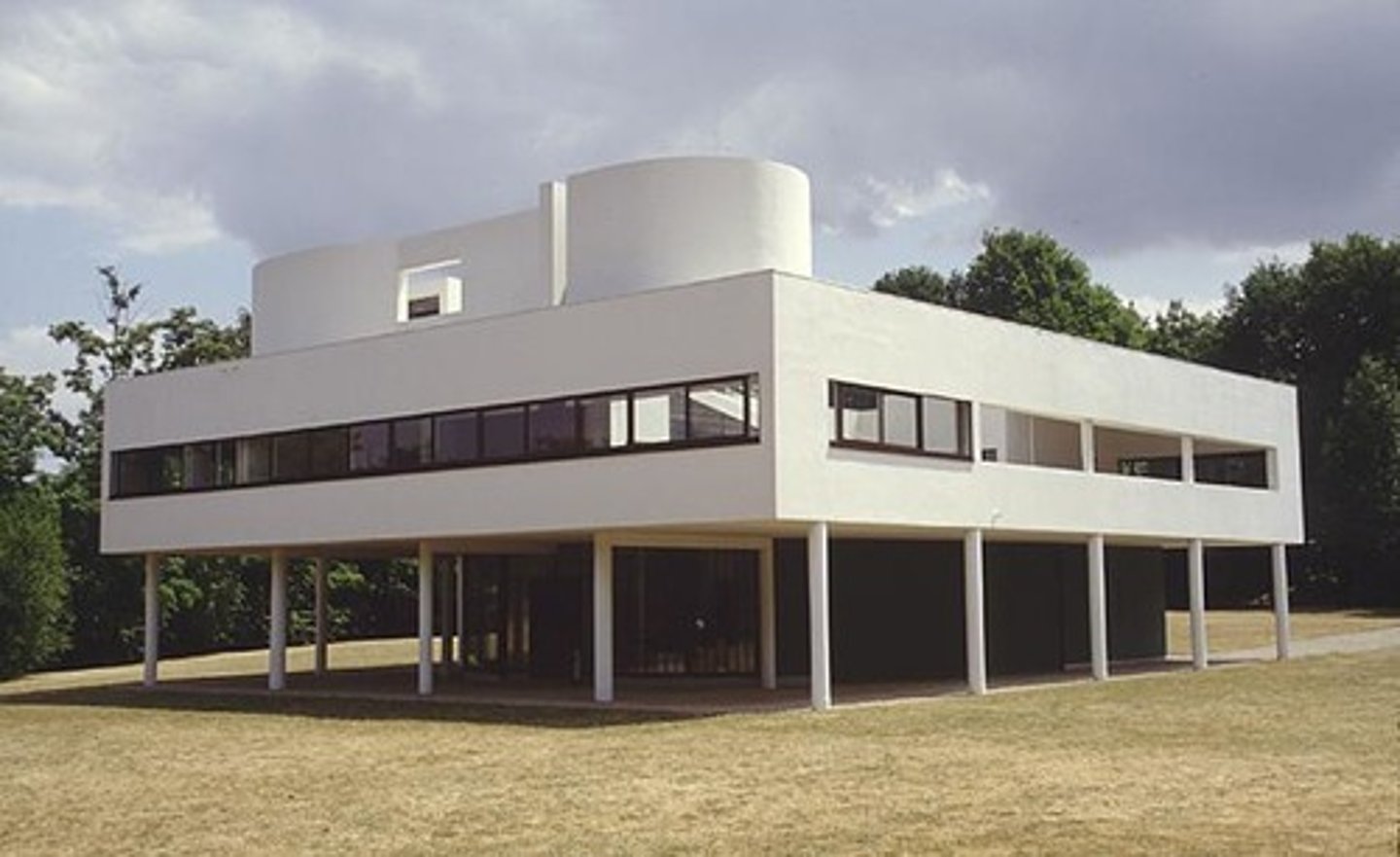
Free Plan
Five Points of Architecture: 1st
Free Facade
Five Points of Architecture: 2nd
Pilotis
Five Points of Architecture: 3rd
A Terrace
Five Points of Architecture: 4th
Ribbon Window
Five Points of Architecture: 5th
Ludwig Mies van der Rohe
Third and last director of Bauhaus. Developed a design approach based on advanced structural techniques and Prussian Classicism. borrowed from the post and lintel construction of Karl Friedrich Schinkel for his designs in steel and glass.
Weissenhof Apartment House
Designed by Van der Rohe; one of the first and most defining manifestations of International style
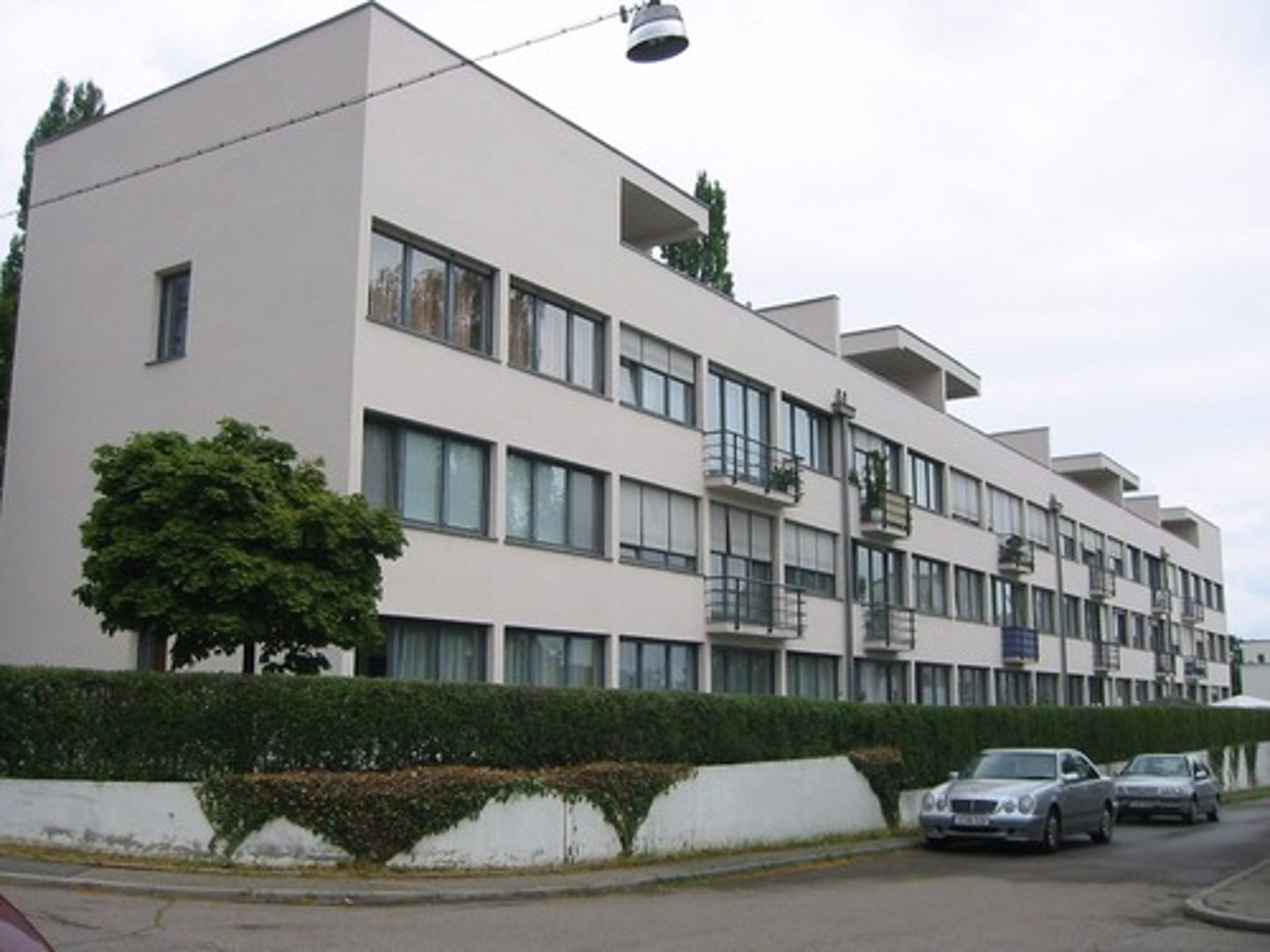
Walter Gropius
German architect who broke form previous design with light, airy, bright buildings of glass and iron. First director of Bauhaus.
Curtain Wall
An exterior building wall that is supported entirely by the frame of the building, rather than being self-supporting or load bearing.
Fagus Works Shoe factory
first of the truly modern buildings. A cubic block that had glass curtain walling, extending around corners with no need for additional support.
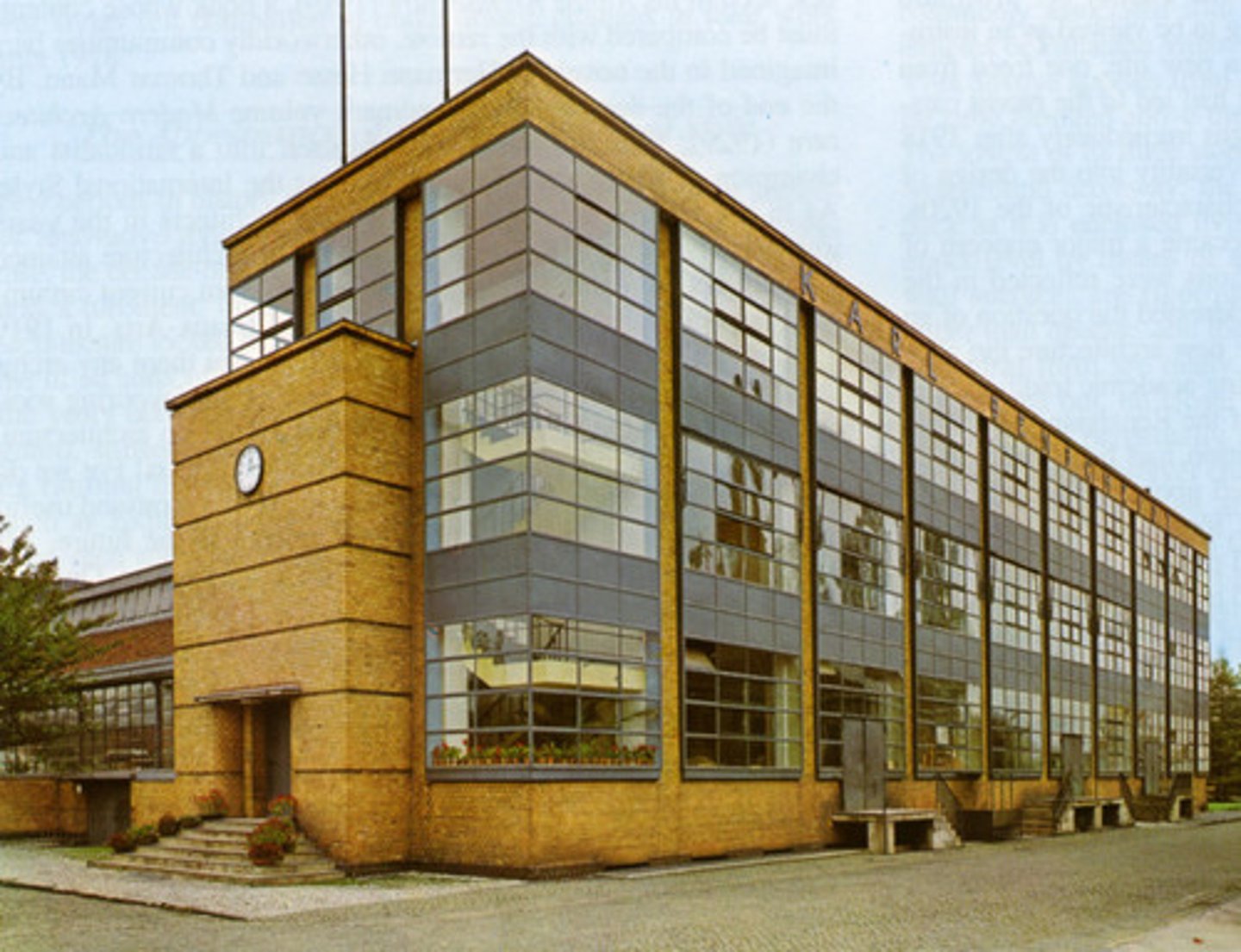
The Glass Palace
a celebration of transparency, formerly a fashion house.
het Nieuwe Bouwen
The architectural style which corresponds roughly to Modernism, Bauhaus and International style in Netherland.
Bauhaus School
Under Gropius, German, School of architecture that brought together modern architecture - glass and steel
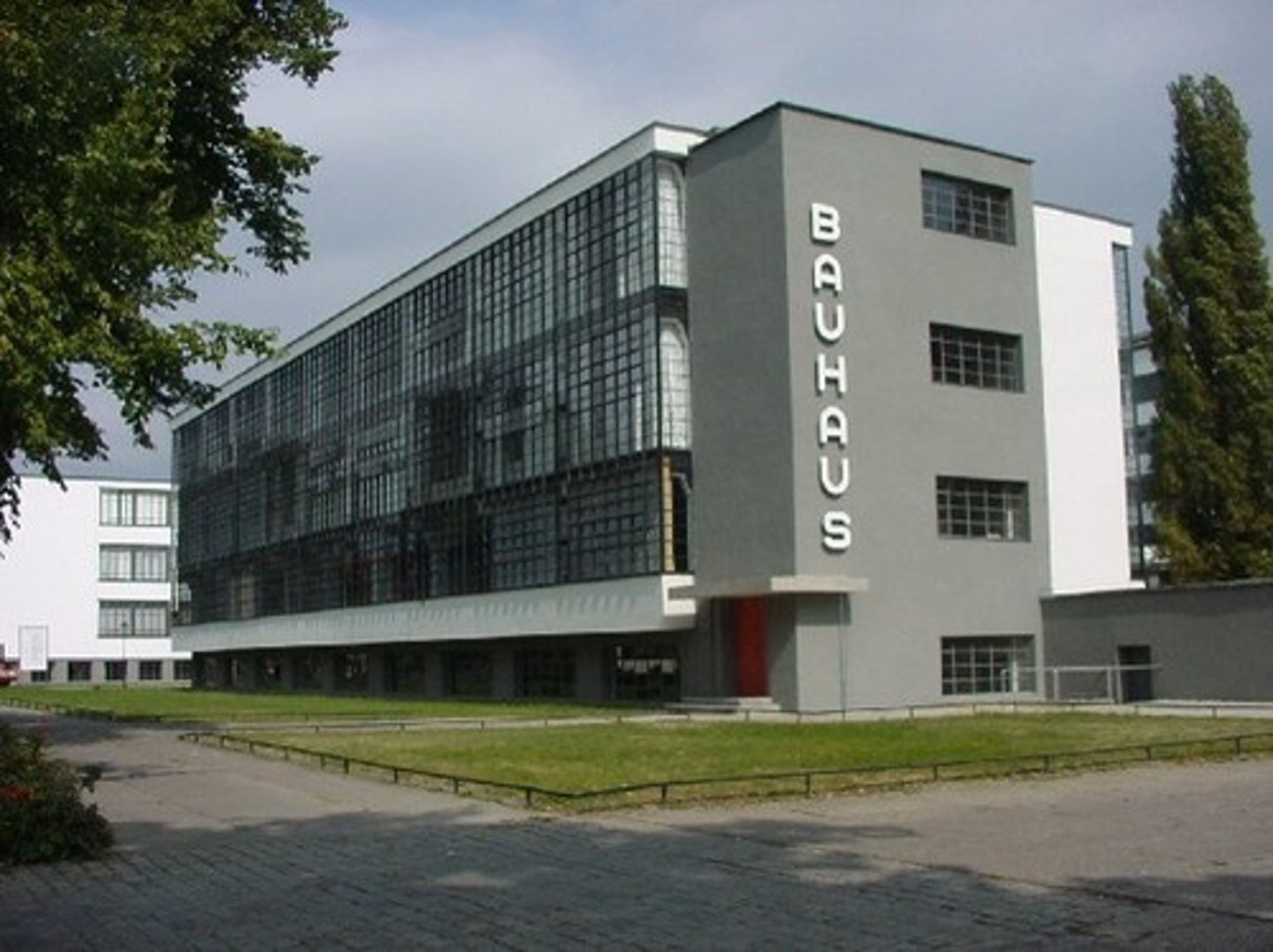
Philadelphia Savings Fund Society Building
world's first international skyscraper designed by William Lescaze and George Howe. A 32-story tower with a skeleton of structural steel and ribbon-like bands of windows
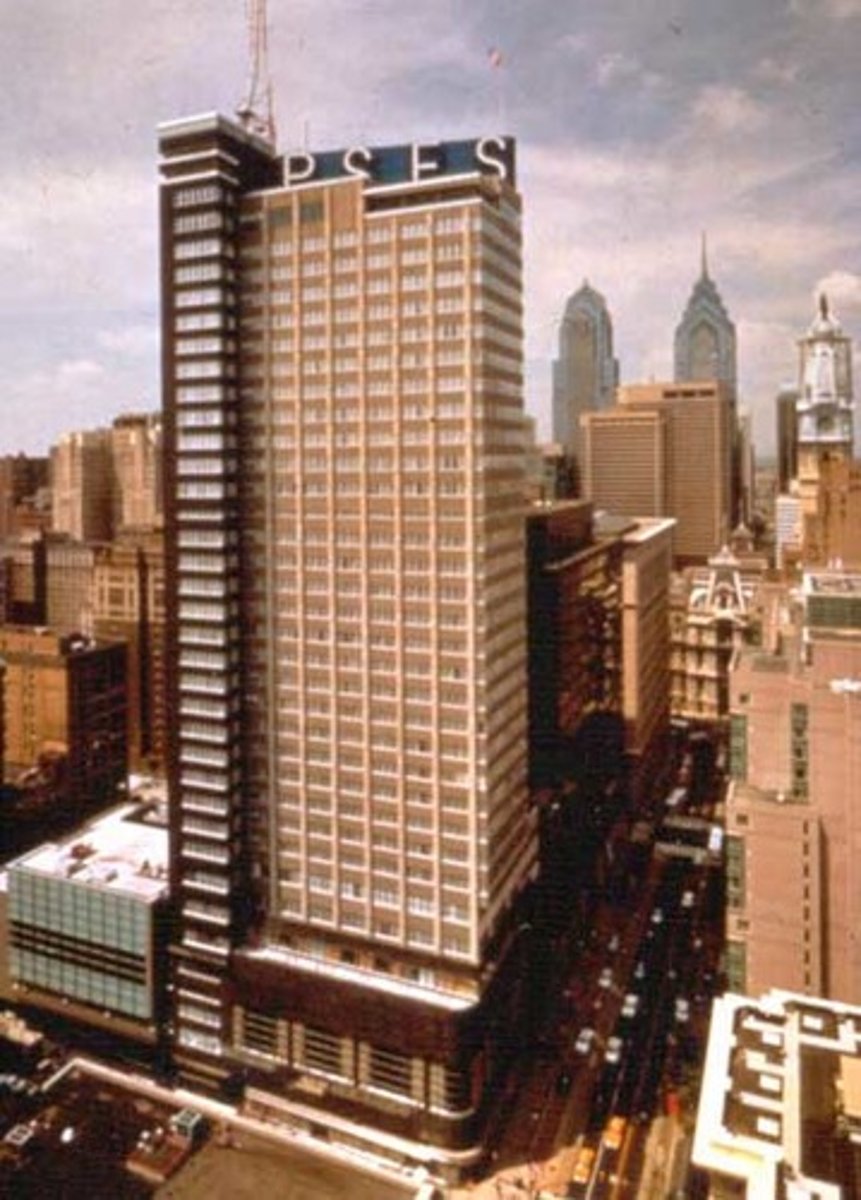
Marcel Breuer
his first projects in the US are mostly domestic. distinguished by an attention to detail and a clarity of expression
Philip Johnson
"Architecture is the art of how to waste space"
buildings were luxurious in scale and materials, featuring expansive interior space and a classical sense of symmetry and elegance.
Skyscraper
a very tall building; has to have a height of 500 ft or 152 m or more.
Tel Aviv
Israel; has 4,000 Bauhaus style buildings. The largest collection of buildings in International style.
Frank Lloyd Wright
Welsh American architect who designed 1000 structures and completed 500 works
Organic Architecture
An architectural style in which the building was in harmony with its natural surroundings.
Modern Architecture
Use of modern materials, adaptation of methods based on functionality planning, and the
abandonment of traditional methods that made the construction style very urban.
Brutalism
Architectural style characterized by bold forms, harsh proportions, and rough materials such as exposed concrete, steel and wood.
Tube Architecture
three-dimensional space structure composed of three four, or possibly more frames, braced frames, or shear walls, joined at or near their edges to form a vertical tube-like structural system capable of resisting lateral forces in any direction by cantilevering from the foundation
Neo-Modernism
A reaction to postmodernism and its embrace of pre-modern elements.